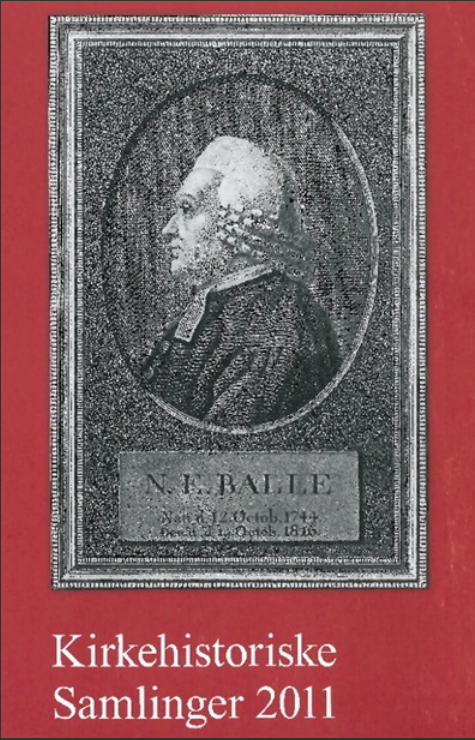Publiceret 15.12.2011
Citation/Eksport
Copyright (c) 2011 Tidsskriftet Kirkehistoriske Samlinger

Dette værk er under følgende licens Creative Commons Navngivelse – Ingen bearbejdelser (by-nd).
Resumé
Summary
A small book in my family’s possession after a long investigation was identified as a sample of Veit Dietrichs book Passio, translated into Danish by Peder Tidemand in 1556. The German original was edited in 1545, and the same year it was edited as a part of the Hauspostille with Luther’s sermons. It was therefore assumed that the sermons in Passio were originally delivered by Martin Luther. The special edition shows, however, that Veit Dietrich delivered these sermons in St. Sebaldus Church in Nurnberg and had the sermons printed and edited as a special gift to Mrs. Baumgartner whose hus- band had been prisoner because of the turbulent situation in the time of the reformation. The edition of the sermons as part of Luther’s Hauspostille was obviously done without Dietrich and Luther knowing it.
Veit Dietrich had a close relation to Martin Luther and to Philip Melanchthon in Wittenberg. His special gift was to popularize the theology of Luther and Melanchthon and to make it accessible to the Protestant churches in Germany. The most important matter to Dietrich was that the Wittenberg theology was the true clue to open up the biblical message to all people, as a comfort, a warning and as a good mes- sage about God’s forgiveness of our sins. This was the basis of his sermons.
Peder Tidemand translated Veit Dietrichs booklet and had it edited in 1556. Tidemand had been a member of the commission, which prepared the edition of a new translation of the Bible, based upon Luther’s Deutsche Bibel. He also translated other books by Dietrich, so he was an experienced translator. Comparisons between 1) Deutsche Bibel and the Bible of Christian III, 2) Dietrichs original Passio and Tidemands translation of Passio, and 3) between Tidemands translation of Passio and the Passio as part of the Husspostille, confirm that Tidemand is a competent translator, and that he is utmost loyal to the original text in Dietrich’s original as well as to the new Danish Bible translation.
In Dietrichs edition of Passio there are eight woodcuts with passion motives, in the Danish translation there are thirteen; none of them are adequately identified. The ‘Danish’ woodcuts are part of a series of 43 woodcuts in a contemporary book, and some of them are used in Norwegian embroidery.
Dietrich’s sermons were delivered in the Lent period in 1545; the texts were from the Gospels of
St. Matthew, chapter 26-27, St. Luke, chapter 23, and St. John, chapter 19. It is characteristic
for his sermons that the most important theme is pastoral care, addressed to his pa- rishioners.
Dietrich’s sermons tell about the passion of Christ, but the text and its interpretation is always applied to the Christian people sitting next to his pulpit. The tradition to deliver special Lent sermons has its origin before the reformation – nowadays it has almost disappeared in the Danish People’s Church.

